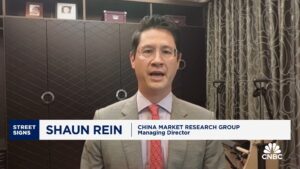
US retailer Target ended its promise to its consumers to get the lowest price. But under pressure of the inflation, triggered off by the trade war with China, and other challenges, Target has changed its long-standing business model. It is the end of a safety net for consumers, says retail analyst Ashley Dudarenok in Time.
Time:
Ashley Dudarenok, who runs a China- and Hong Kong-based consumer research consultancy, said the decision “eliminates a safety net for consumers” who could be sure that they were getting the most competitive prices at Target. “For consumers, this means the onus is now on them to compare prices before shopping, potentially pushing the most price-sensitive shoppers to competitors like Walmart or Amazon for certain purchases.”
Dudarenok says that Target is hoping its “loyal customer base, often attracted by the in-store experience and exclusive brands (the ‘Tar-jay’ effect) will absorb this change.” But the move is risky, she adds, at a time when U.S. consumer spending is falling.
Target has grappled with a slump in sales this year, with the company missing its Q1 revenue estimate and cutting its full-year sales outlook in May…
Target has also struggled with consumer boycotts following its decision on Jan. 24 to roll back its diversity, equity, and inclusion (DEI) policies.
President Trump signed an executive order on Jan. 20 decrying DEI as “illegal and immoral discrimination” and ending federal initiatives. The order does not force private employers to abolish DEI programs but opens up companies to anti-DEI backlash.
“The company is juggling significant financial pressures, including the looming threat of tariffs on Chinese goods, with the need to maintain customer loyalty,” Dudarenok says. “Ending the price match policy is a defensive financial move. At the same time, the company is still navigating the fallout from its DEI initiatives, trying to find a neutral ground that doesn’t alienate its diverse customer base.”
Target’s challenges date back several years. The company’s annual revenue has stagnated since 2021, while its shares have fallen around 60% in that time.
Ashley Dudarenok is a speaker at the China Speakers Bureau. Do you need her at your meeting or conference? Do get in touch or fill in our speakers’ request form.
Are you looking for more branding experts? Do check out this list.
